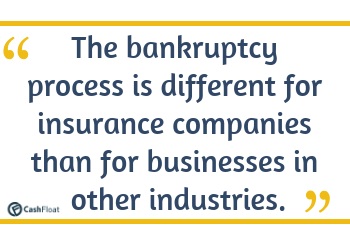Exploring the Effect of an Organization Going Into Management

Immediate Influence On Operations
When an organization goes right into administration, the instant effect on its operations can be substantial, affecting numerous facets of its operating. One of the key consequences is the disruption in day-to-day activities. With unpredictability bordering the future of the firm, employees may experience distress, leading to reduced efficiency and inspiration. Suppliers and partners might come to be hesitant to engage with the company, affecting the supply chain and possibly creating delays or scarcities in necessary sources.
Financially, the firm may face constraints on its spending and financial investment choices, as administrators take control to evaluate the circumstance and figure out the very best program of activity. This can bring about capital obstacles, making it difficult to fulfill commitments such as paying incomes or settling invoices immediately - what does it mean to go into administration. Furthermore, the track record of business may suffer, as information of management spreads, possibly bring about a loss of client trust fund and commitment
Financial Implications for Stakeholders
The immediate operational obstacles faced by a business entering administration have considerable monetary implications for stakeholders associated with the business's events. Investors commonly birth the brunt of financial losses, experiencing a decrease in the worth of their investments as the firm's supply prices drop. Staff members face unpredictabilities regarding their wages, benefits, and work protection, with possible layoffs or minimized compensation plans looming. Distributors might encounter settlement hold-ups or perhaps non-payment for products or solutions supplied, affecting their capital and total stability. Furthermore, financial institutions deal with the risk of receiving just a portion of the cash owed to them, resulting in possible losses and influencing their very own economic health and wellness. On the various other hand, clients might likewise be influenced by a service going right into administration, encountering interruptions in service, warranty problems, or the loss of pre-paid services or down payments. These financial ramifications highlight the causal sequence that a service going into management can have on numerous stakeholders, emphasizing the value of proactive risk management and strategic planning.
Lawful Commitments and Duties
When a business gets in administration,Browsing the complex web of legal obligations and obligations is an important undertaking for all parties involved. The managers assigned to look after the procedure have a task to act in the very best interests of the creditors. They need to comply with lawful requirements, such as preparing reports on the firm's monetary circumstance and carrying out conferences with financial institutions to review the management procedure.
Workers additionally have legal civil liberties that need to be upheld throughout management. Depending on the scenarios, they might be entitled to redundancy pay, notification pay, and other advantages. It is vital for managers to adhere to employment legislations and make certain that staff members are dealt with relatively throughout the procedure.
Lenders play a considerable function in management too. They deserve to be educated regarding the company's financial condition, go to financial institutions' meetings, and vote on crucial choices. Administrators need to interact transparently with lenders and stick to lawful protocols to secure their interests.
Prospective for Organization Restructuring
In the realm of organization administration, checking out the possibility for reorganizing holds significant assurance for renewing a having a hard go time firm. When a service deals with monetary distress or functional challenges, restructuring offers a strategic technique to resolve underlying concerns and position the firm for future success. By reassessing the organizational framework, functional processes, and financial Recommended Site techniques, a business can implement adjustments that enhance performance, reduce expenses, and enhance total efficiency.
One trick facet of business restructuring is recognizing and addressing inadequacies within the company. This may involve improving processes, reapportioning resources, or reviewing the product or service offering to far better align with market needs. In addition, restructuring can include renegotiating contracts, financial debt commitments, or lease agreements to improve capital and decrease economic stress.
Additionally, restructuring offers a chance to evaluate management functions, responsibilities, and decision-making procedures to ensure effective governance and liability. By implementing a well-thought-out restructuring plan, a service can browse tough times and emerge stronger and more resistant in the open market landscape.

Ramifications for Sector and Market
Taking into consideration the broader effects for industry and market characteristics, it ends up being apparent that an organization undertaking restructuring can trigger ripple effects that reverberate throughout the competitive landscape. When a firm goes right into management, it can bring about boosted competitors as other firms look for to fill the void left by the battling service. This increased competitors can result in rate wars, technology drives, or mergers and acquisitions as business jostle for market share.
Additionally, the collapse of a company can additionally impact distributors and partners within the industry - what happens when a company goes into administration. Distributors may encounter payment hold-ups or even defaults, influencing their own financial security. Collaborations that were reliant on the now-struggling company might require to be reevaluated or renegotiated, leading to further disruptions on the market environment
Conclusion

When a business goes right into administration, the prompt effect on its procedures can be considerable, affecting different aspects of its working.The prompt operational obstacles dealt with by an organization going into management have considerable economic ramifications for stakeholders included in the firm's affairs (what happens when a company goes into administration). These monetary implications highlight the ripple impact that a business going into management can have on various stakeholders, highlighting the relevance of positive threat monitoring and tactical preparation
When a firm goes into administration, it can lead to raised competition as other companies look for to fill the space left by the battling business.In conclusion, the effect of a business going into management is substantial, influencing operations, financial resources, lawful obligations, and potentially leading to restructuring.
Comments on “Browsing Company Administration: Recognizing the Process in the UK”